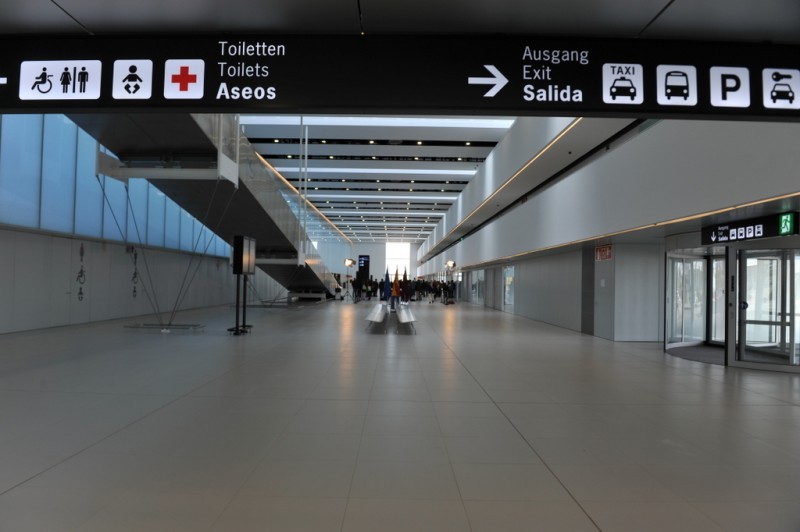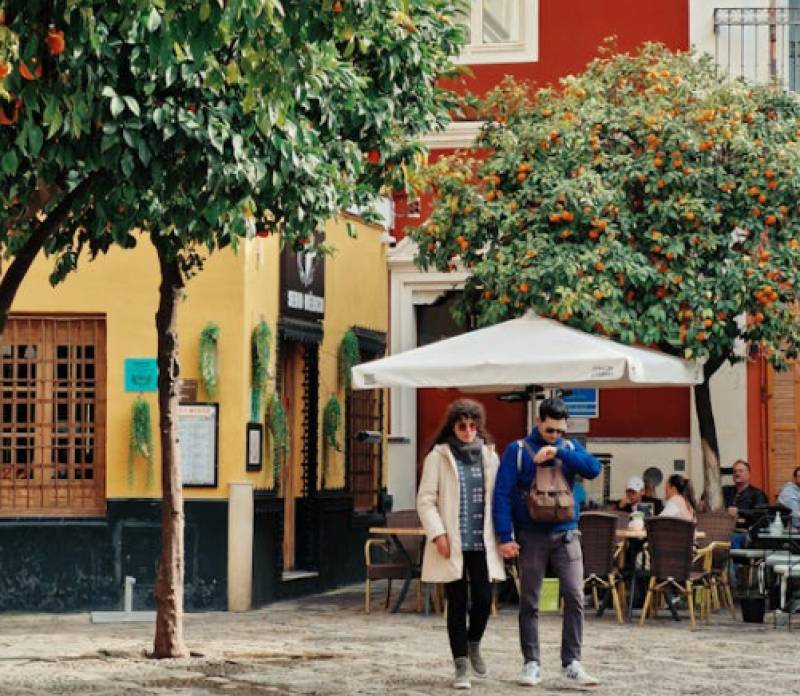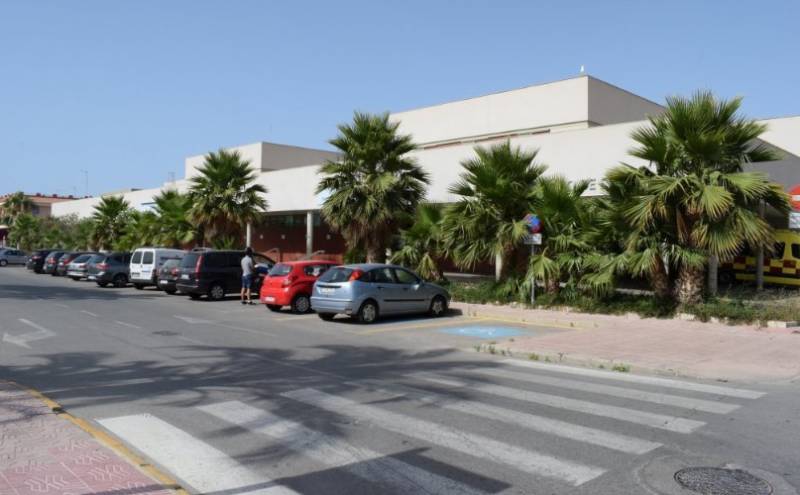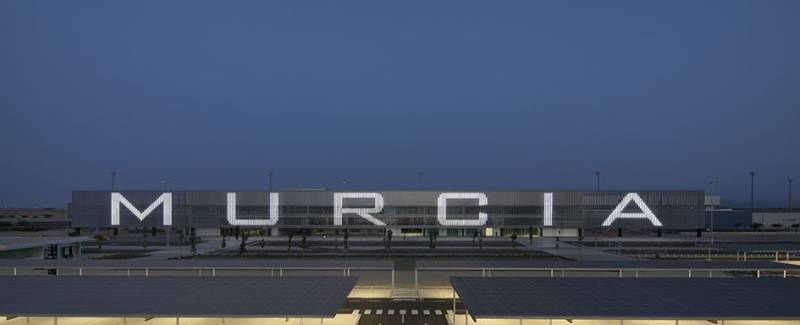

Guidelines for submitting articles to Roda Golf Resort Today
Hello, and thank you for choosing La Torre Today.com to publicise your organisation’s info or event.
Roda Golf Resort Today is a website set up by Murcia Today specifically for residents of the urbanisation in Southwest Murcia, providing news and information on what’s happening in the local area, which is the largest English-speaking expat area in the Region of Murcia.
When submitting text to be included on Roda Golf Resort Today, please abide by the following guidelines so we can upload your article as swiftly as possible:
Send an email to editor@spaintodayonline.com or contact@murciatoday.com
Attach the information in a Word Document or Google Doc
Include all relevant points, including:
Who is the organisation running the event?
Where is it happening?
When?
How much does it cost?
Is it necessary to book beforehand, or can people just show up on the day?
…but try not to exceed 300 words
Also attach a photo to illustrate your article, no more than 100kb

Corvera International airport articles
After a decade of controversy Corvera airport is on course to welcome its first flights in January 2019
The idea of a new airport in the Region of Murcia first began to be taken seriously in the early years of the new millennium, when the number of passengers using Murcia-San Javier began to rise sharply (by 2007 the figure had topped 2 million, before falling to only half that number by 2014 and then beginning a gradual recovery).
However, there was initially little enthusiasm for the project on the part of the national government, with heavy investment having been made into increasing the capacity of Alicante-Elche, and it was not until 2008 that construction of the infrastructure in Corvera began. At that point the construction and management contracts had been awarded to a privately owned consortium called Aeromur, the major part of which was owned by construction giant Sacyr, there was to be a station at the airport on a new AVE high-speed rail line between Murcia and Cartagena, Murcia-San Javier was to remain open in competition with Corvera, and the forecast date for the first flights was some time in 2011.
A lot of water has passed under the bridge since then!
Now, with almost everything apparently in place at last for the opening of the Region of Murcia Airport on 15th January 2019, it is appropriate to look back over the twists and turns in what has at times seemed like an interminable saga of setbacks, arguments, changes of mind and controversy, with the realistic prospect of being able to say by the summer of 2019 that they will all be in the past.
What follows is a summary of the developments at the airport which have been reported on in Murcia Today since 2009, with links to some of them to enable readers to reminisce about what was being predicted, disputed, suggested and ruled out at various stages over the last decade!
2009
As the end of the year approached the contract to build the access roads was put out to tender ambitious plans for a new AVE high-speed rail link to be created between Murcia and Cartagena, including an underground station at the airport in Corvera and a 7-kilometre tunnel under the mountains which currently separate the two cities. However, the Corvera project was running into financial difficulties, in December a 200-million-euro bank loan was extended to Aeromur for the completion of construction. This loan was agreed upon by the banks only after the regional government of Murcia, still led by Ramón Luis Valcárcel, acted as guarantor.
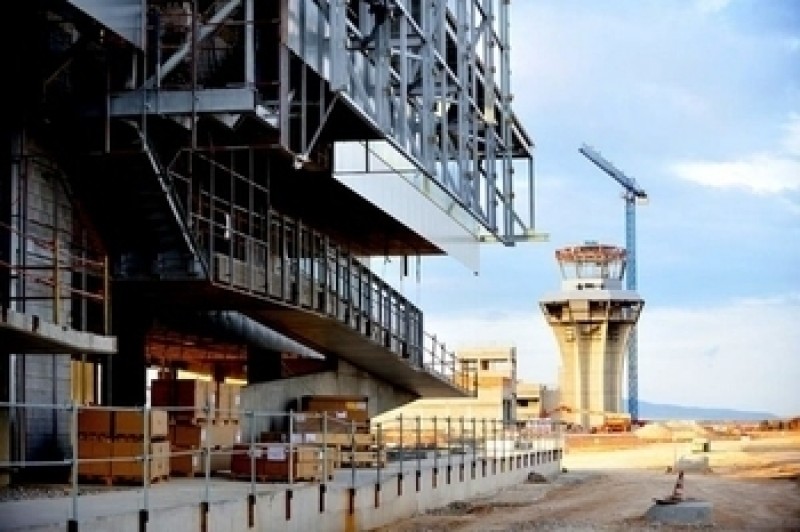
2010
As the year began, with construction work continuing apace, there were still optimistic statements implying that the airport could open before the end of 2011, and the first stone on the access roads was laid in the last week of January. But the loan agreement, which was confirmed by Aeromur on 30th January, was already running into potential problems, as regional opposition politicians began to question whether it was not in breach of EU laws, and whether word might come from Brussels that the guarantee provided by the government constituted unfair aid to private enterprise.
By the end of March the loan agreement was still unsigned, but in the meantime the plans for phase 2 of the airport were approved. But a new aspect of the saga began with the first of many protests from the former owners of the land on which the airport is located, who had not been paid for the forced expropriation of their properties. Meanwhile, passenger numbers at San Javier began to fall, raising questions over the viability of two airports in such close proximity.
By May there was good progress on the access roads but still no news from Brussels about the loan, and doubts hung in the air despite the project being given an award for its innovation and sustainability.
By June, there was news that the EU was not likely to object to the loan and the heated debate over whether it was feasible for two airports to compete in Murcia continued. Chinese delegates inspected the facility in July , but by October there were doubts over the AVE high-speed rail link, which was expected to reach the city of Murcia by 2014 and Cartagena 3 years later, and the prospect of an underground station in Corvera was said to be contemplated only if Aeromur paid for it!
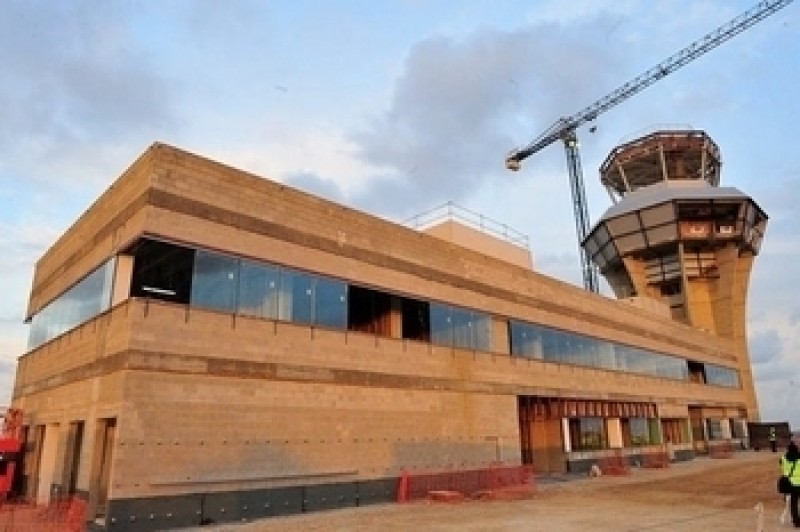
Nonetheless, the year ended with the signing of an agreement between the regional and national governments to build the AVE link!
2011
The “taxi wars” at Corvera began as long as eight years ago and so confident were people that the opening of the facility was imminent that staff recruitment and training programs were announced for the new airport. There were 20,000 applicants for the first 500 jobs and in May the contracts to offer the courses were put out to tender, but then by September it had been stated that Murcia-San Javier would close to commercial traffic and that Aena employees would be offered the chance to move to Corvera.
This had first been mooted by Ramón Luis Valcárcel in March, almost immediately after the opening of a second runway in San Javier, but Aena, the State-owned management company of Spain’s airports, were not in agreement. Aena had been excluded from the running of Corvera, and battle was joined as the regional government anticipated a huge increase in tourism once the new airport opened.
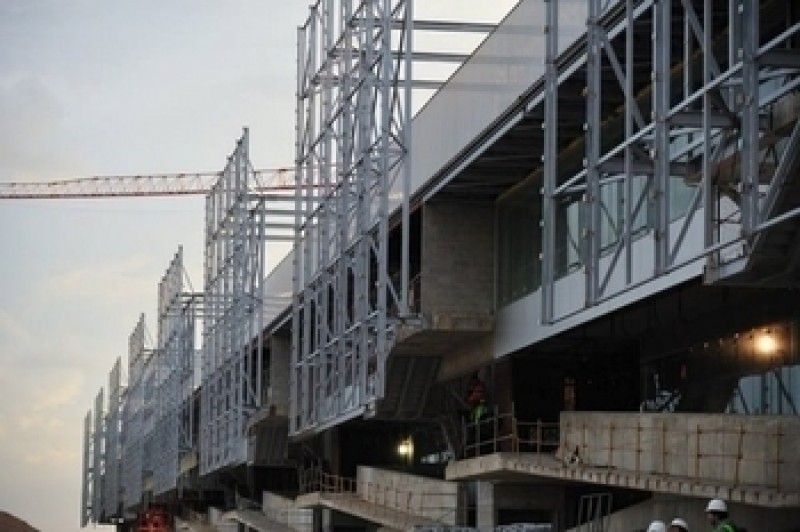
Construction was still reported to be on schedule although the anticipated opening date was now early in 2012, while revised air traffic forecasts contemplated 3 million passengers a year. However, there were signs that all was not well when Aeromur’s airport director Mariano Menor resigned in August, although optimism remained high when President Valcárcel was involved in negotiations with Ryanair to guarantee flights at Corvera.
By the end of the year Jet2 had confirmed that they would be flying to Corvera, although the airline recommended waiting for the transfer until after summer 2012 (!) and a formal agreement for the transfer of civilian flights away from San Javier had been signed.
2012
Progress continued at the terminal building with the electricity supply being connected and a new airport director appointed, and even in January 2012 Antonio Sevilla, the minister for Public Works in the regional government, forecasted that the first planes would be landing and taking off in June or July. The airport was included in a draft document for the Mediterranean Corridor rail link, and staff training contracts were put out to tender in March.
But by April it had become apparent that the planned opening of the airport would not be possible until at least 2013, and then, although test flights took place, by June it was considered “premature” to consider naming an opening date. There were worries that the flight paths could be incompatible with the use of air space by the military, and meanwhile Aena made it clear that there was little intention of closing down San Javier as a new duty free shop was announced there!
In September Aeromur named April 2013 as the likely opening date after test flights were concluded, and in November Antonio Sevilla was back in the news as he confirmed that now the intention was for the airports of San Javier and Corvera to operate in parallel!
2013
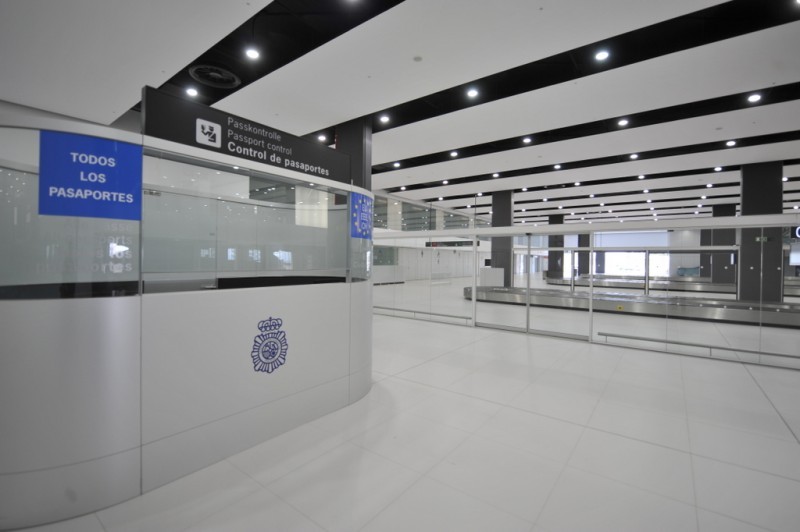
The year began with optimism that the airport in Corvera could open at last, but damning criticism in the national press raised scepticism and by April rumours had begun began to circulate that Aeromur was experiencing difficulties in paying back the 200-million-euro loan. These rumours quickly proved to be correct and suddenly the regional government was at loggerheads with the management company, refusing to provide another bailout and initiating procedures to rescind the management contract.
By the end of May Sr Valcárcel was claiming that Aena would be willing to take the contract over, but uncertainty was the mood throughout the second half of the year as all hopes of a rapid opening were dashed. In September the government went ahead with the rescission, Aeromur sought bankruptcy protection and by the end of the month the Guardia Civil had been called in to help the government take possession of the airport and ensure no assets were removed.
This signalled the start of a long series of appeals by Aeromur against the rescission, some of which are still going on, and an adjustment of the regional budget to take the 200-million-euro loan interest payments into account. By the end of the year, summer flight schedules had been confirmed at Murcia-San Javier for another year.
2014
Surprisingly, the year began with a reconciliation between Aeromur and the government, with the former agreeing to operate Corvera in competition with San Javier and the latter extending another loan of 160 million euros . EU approval was needed for the loan, but in the meantime there were still hopes that the terminal building, by now completed two years previously, would be in use by the end of the year.
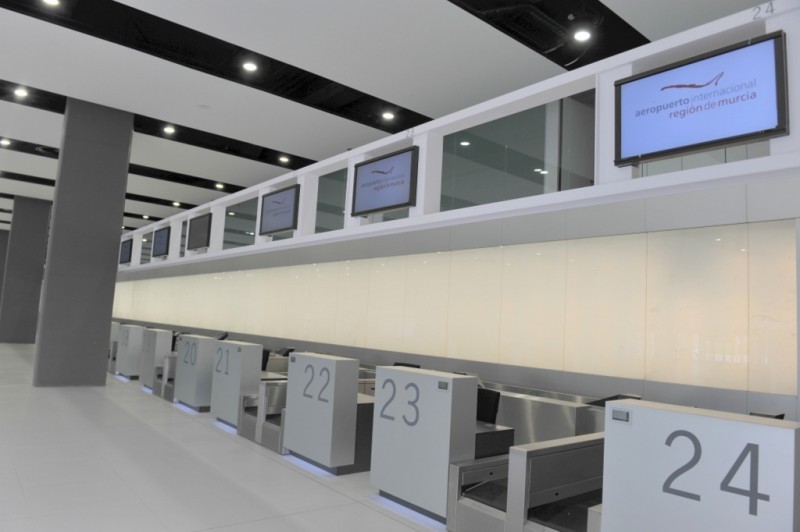
Ramón Luis Valcárcel resigned in April to be replaced by Alberto Garre, and with Aena still seeking compensation for the possible closure of San Javier new Murcia minister for Development Manuel Campos remained optimistic over a 2014 opening, but by October it was clear that no decision would be coming from the EU in a hurry. The lack of closure plans at San Javier was still a major practical obstacle and staff at the existing airport opposed any transfer to work for a privately owned consortium, but the regional government continued with the bureaucratic processes required to open the airport and obtain all the necessary licences.
Personnel were contracted to cover security, fire precautions and safety in order to comply with the conditions specified for certification, although it was freely admitted by the regional minister for Infrastructures that a “Plan B” for financing options was being considered as the outstanding loan racked up 22,000 euros a day in interest. At the end of December it was announced by Francisco Bernabé, who had replaced Manuel Campos, that the management contract at Corvera would be put back out to tender: crucially, though, no mention was made of when that might happen…
2015
With the process of drawing up, putting out to tender and awarding the new contract under way, any realistic opening date for Corvera airport had now receded until at least summer 2016, and at the same time negotiations with Aena to close San Javier were still proving to be less than productive. So confusing was the situation that Google Maps even appeared to be having trouble finding Corvera airport, labelling it “San Javier” instead, while at the “real” San Javier passenger numbers were now 82 per cent lower than in 2007.
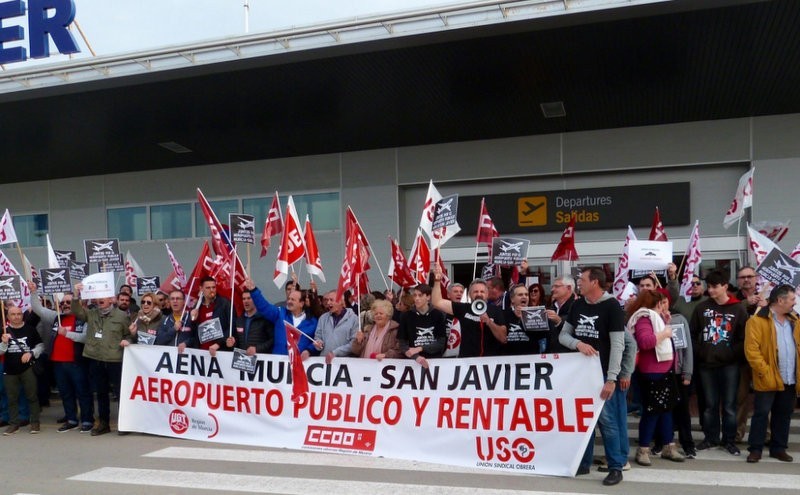
Aeromur joined Aena in seeking compensation, this time for the rescission of the management contract, and the campaign to “save” Murcia-San Javier gained momentum as opponents of Corvera saw that the future of the new infrastructure was hanging in the balance.
But by the end of September 2015 a full inventory had been completed at the airport, and preparations made to adjudicate a contract for a revised business plan to be drawn up. At the same time a regional parliamentary committee was formed to investigate the accusations of mismanagement of the whole project, and then the feeling that a new sense of purpose had emerged was underlined by the announcement that Aeromur’s first appeal had been rejected by the courts.
The new business plan for Corvera was necessary as a preliminary to the second management contract, and at this stage it was reported that Aena was one of seven companies to have expressed an interest in bidding for that contract.
2016
As 2016 began there were few people even daring to guess an opening date at Corvera, and the intriguing prospect emerged that Sacyr, the majority shareholder in Aeromur, could bid for the second management contract! This never materialized, and the possibility was soon forgotten as the courts continued to rule in favour of the regional government, giving it ownership of the airport.
By now the legal situation was so complex that the parliamentary committee could not even enter the terminal building to see it for themselves, but by May those interested in bidding for the new contract were able to do so. It was confirmed by national government Minister Ana Pastor that Aena would be among them, and as the courts continued to rule again and again in favour of the Murcia government and against Aeromur the progress remained steady if slow.
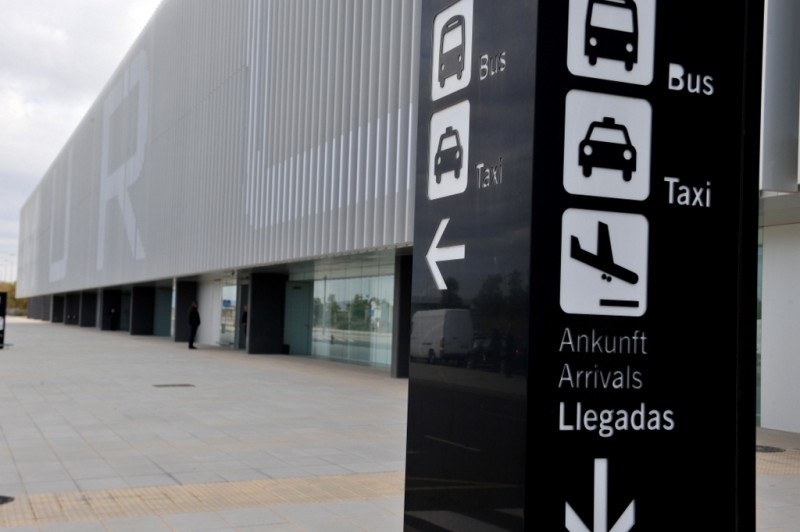
Yet another new Murcia government minister, Pedro Rivera, was appointed in June and it soon transpired that another short delay in the tender process was expected, but even after the courts finally ruled that Aeromur was obliged to pay back 182 million euros there was still heated opposition in many quarters to the closure of San Javier, the one condition which all bidders for the contract would be demanding but which only Aena could guarantee. Some with a shrewd assessment of the situation were by now beginning to suspect that at this point the contract was likely to be awarded to Aena or to non-one.
2017
Aena continued to stick to its guns and refuse to guarantee the closure of San Javier to passenger flights, but real progress towards opening Corvera was made at long last in March when it was announced that the new management contract was ready to be put out to tender. The airport website was re-launched (although it contained little information) and by 3rd May it was confirmed that three bids had been received and were to be evaluated.
These bids had been submitted by Aena, Corporación América and Edeis, but Corporación América fell by the wayside after shortcomings in the bid were not rectified. And then, after the government decided that the official name for the airport should be “Juan de la Cierva”, there was one: firstly Edeis failed to submit full technical and financial details of their proposal, and then in December 2017 it was announced that the contract had been officially awarded to Aena. This, in theory made it possible for the airport to be up and running by the end of 2018.
2018
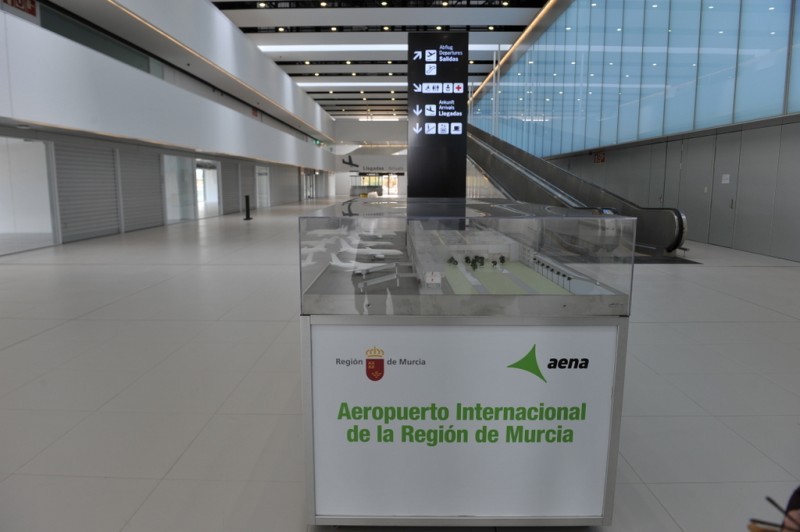
2018 was an unprecedented year in the long saga regarding the new airport in Corvera, as despite Aeromur’s insistence on fighting and losing more court battles progress towards the opening of the facility has been constant and steady. Throughout the year contracts have been awarded for various services, from security and control tower operation to falconry patrols and re-painting runway markings, and everything was on schedule for the transfer of flights from San Javier on 15th January 2019.
2019
The airport opened on January 15th, and three months later Aeromur finally went into liquidation, ending a saga which had lasted over a decade.
There are still many issues to be resolved, among them the details of the business park which is to be created alongside, the level of bus services to and from the airport (the rail link proposals vanished years ago) and, of course, the number of flights taking off and landing at Corvera over the next few years.
Fifteen years ago, leading politicians and analysts in Murcia reached the conclusion that the creation of a new airport nearer to the regional capital was one of the key projects which would drive forward the economy and particularly the tourist sector in the future. Other similarly ambitious schemes, such as the Paramount Theme Park, the Marina de Cope development and the macro-container port at El Gorguel have stalled, while the arrival of the AVE high-speed rail network has suffered considerable delays, but in the case of the Region of Murcia International Airport we are about to start finding out whether they were right!







